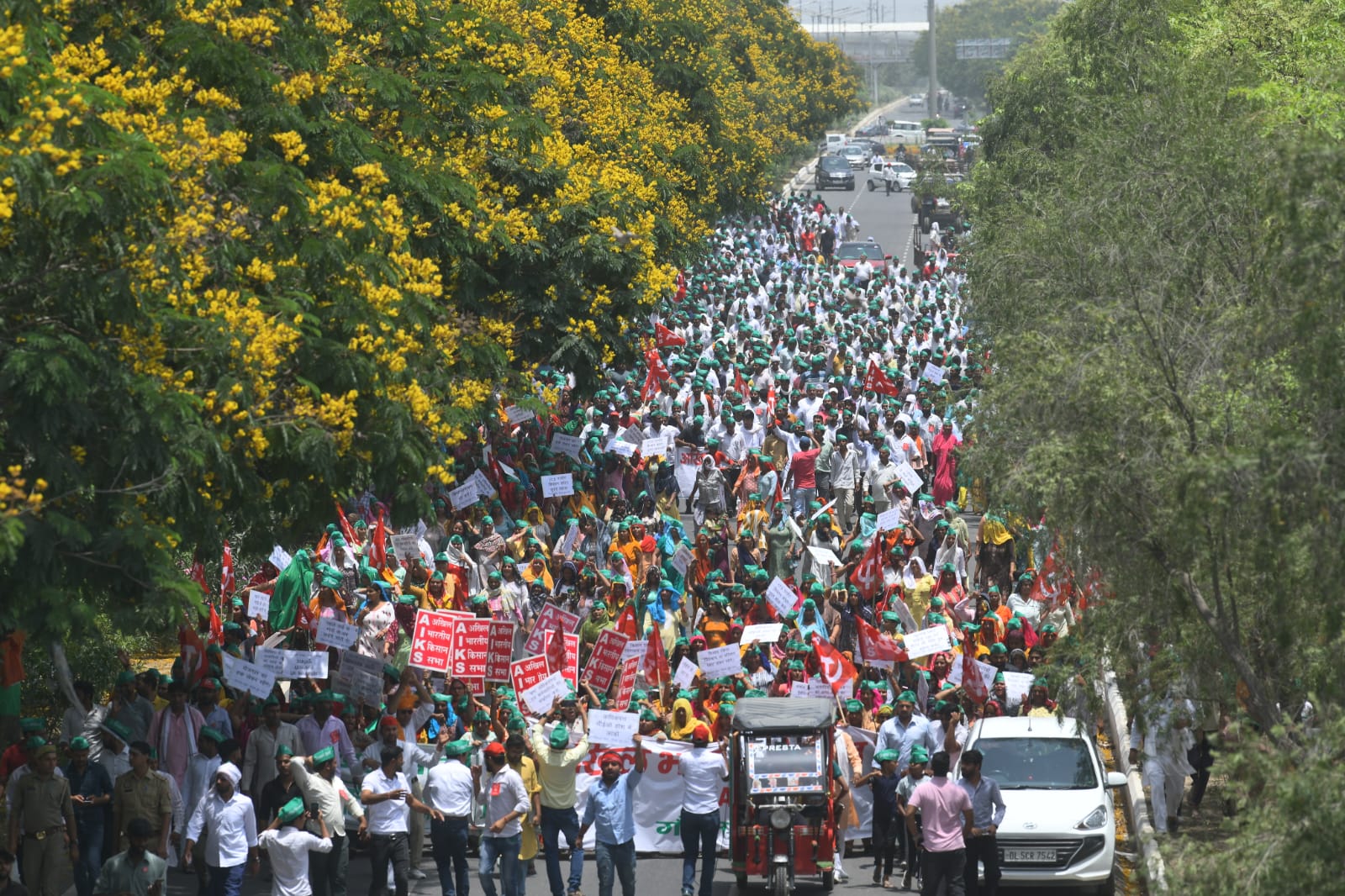Modi Government urged to support cooperatives of coffee growers instead of promoting 100% FDI and contract farming
 The All India Convention of coffee growers has urged Narendra Modi government to support social cooperatives of coffee growers to establish and own large scale Instant Coffee industry. 65% of the coffee produced World over is converted as instant coffee powder. Few big companies namely BRU, Nestle, Hindustan Lever and Tata have monopoly over instant coffee market in India.
The All India Convention of coffee growers has urged Narendra Modi government to support social cooperatives of coffee growers to establish and own large scale Instant Coffee industry. 65% of the coffee produced World over is converted as instant coffee powder. Few big companies namely BRU, Nestle, Hindustan Lever and Tata have monopoly over instant coffee market in India.
Coffee Board should promote Co-operatives of coffee growers to trade their products in both domestic and World markets and the central/State Governments support these co- operatives financially instead of allowing 100% FDI in agriculture and retail trade and contract farming.
The All India convention of coffee growers was held at Bangalore on 22nd October and adopted 10 point charter that sought to maintain prices at all levels that are remunerative to small scale producers. The convention was inaugurated by Hannan Molllah, General Secretary of AIKS. P Krishnaprasad placed the report. A special session was chaired by Dr Vijoo Krishnan. Dr Basavraj , Director , quality control division of teh coffee Board placed paper on value addition, processing and marketing under cooperative plan.
1st February will be observed as demands day and Sit-in Dharna will be organized at district head quarter on 15th February. The members of the coordination committee will submit memorandum to the Union Ministr of Commerce. State and district level conventions will be held before 30th January 2019.
 The convention elected P Krishnaprasad as Convenor, Theertha Mallesh, Naveen Kumar and P K Suresh as Joint Covenors, Vijoo Krishnan, P P Sathyan, Dr.Durga Prasad, Sethu Muthu Lingam as members. The convention was attended by delegates from Karnataka, Kerala and Tamil Nadu. Delegates representing Karnataka Growers Federation also attended.
The convention elected P Krishnaprasad as Convenor, Theertha Mallesh, Naveen Kumar and P K Suresh as Joint Covenors, Vijoo Krishnan, P P Sathyan, Dr.Durga Prasad, Sethu Muthu Lingam as members. The convention was attended by delegates from Karnataka, Kerala and Tamil Nadu. Delegates representing Karnataka Growers Federation also attended.
99% land holding among coffee growers come under small holder category with below 10 hectares and less. These small holdings occupy around 75% of the area under coffee and contribute around 70% of the country’s production.
Highly volatile World market is the most important factor that goes against the interests of small growers. Studies show that only 10% of the value of the fine consumer products goes back to primary producers’ world over. At present the average price of coffee beans is Rs 120 to 140 per kg for Robusta and Rs 180 to Rs 200 per kg for Arabica.
The convention also demanded to ensure environmental sustainability of coffee cultivation, including adaptation to and mitigation of the effects of climate change. Promote tree plantation in the coffee area.
With regards,
P Krishnaprasad
Convenor, All India Coffee Growers Sub Committee, AIKS.
Charter of Demands
1. Government of India has to withdraw its declaration of allowing 100% FDI in agriculture and retail trade and contract farming.
2. Government of India and state governments of coffee area extend budget ary support to social cooperatives of coffee growers to establish and own large scale Instant Coffee industry based on most advanced technology and ensure service of Coffee Board to protect the interests of the primary producers and ensure quality coffee for the public.
3. Maintain prices at all levels that are remunerative to small scale producers while taking into account the interests of consumers. Improve market structures, including access to financial instruments, such as price-risk management schemes and price stabilization fund.
4. Coffee Board should promote Co-operatives of coffee growers to trade their products in both domestic and World markets and the central/State Governments support these co- operatives financially.
5. Stimulate the improvement of quality and productivity of Indian coffee through comprehensive plan for farm mechanization, productivity enhancement, conservation of environment, and expansion of coffee area so that to capture 10 % of the World coffee market within a period of 10 years.
6. Promote image of coffee to expand domestic market by encouraging increased consumption and market development.
7. Promote the contribution of coffee to poverty alleviation and living conditions of smallholders.
8. Support the research and development of new technologies; explore ways to mitigate the effects of the rising costs of some key inputs in the production process including pesticides and fertilizers.
9. Ensure the environmental sustainability of coffee cultivation, including adaptation to and mitigation of the effects of climate change. Promote tree plantation in the coffee area.
10. Coffee Board to help to improve infrastructure of coffee production and logistics in the coffee area across the country.



